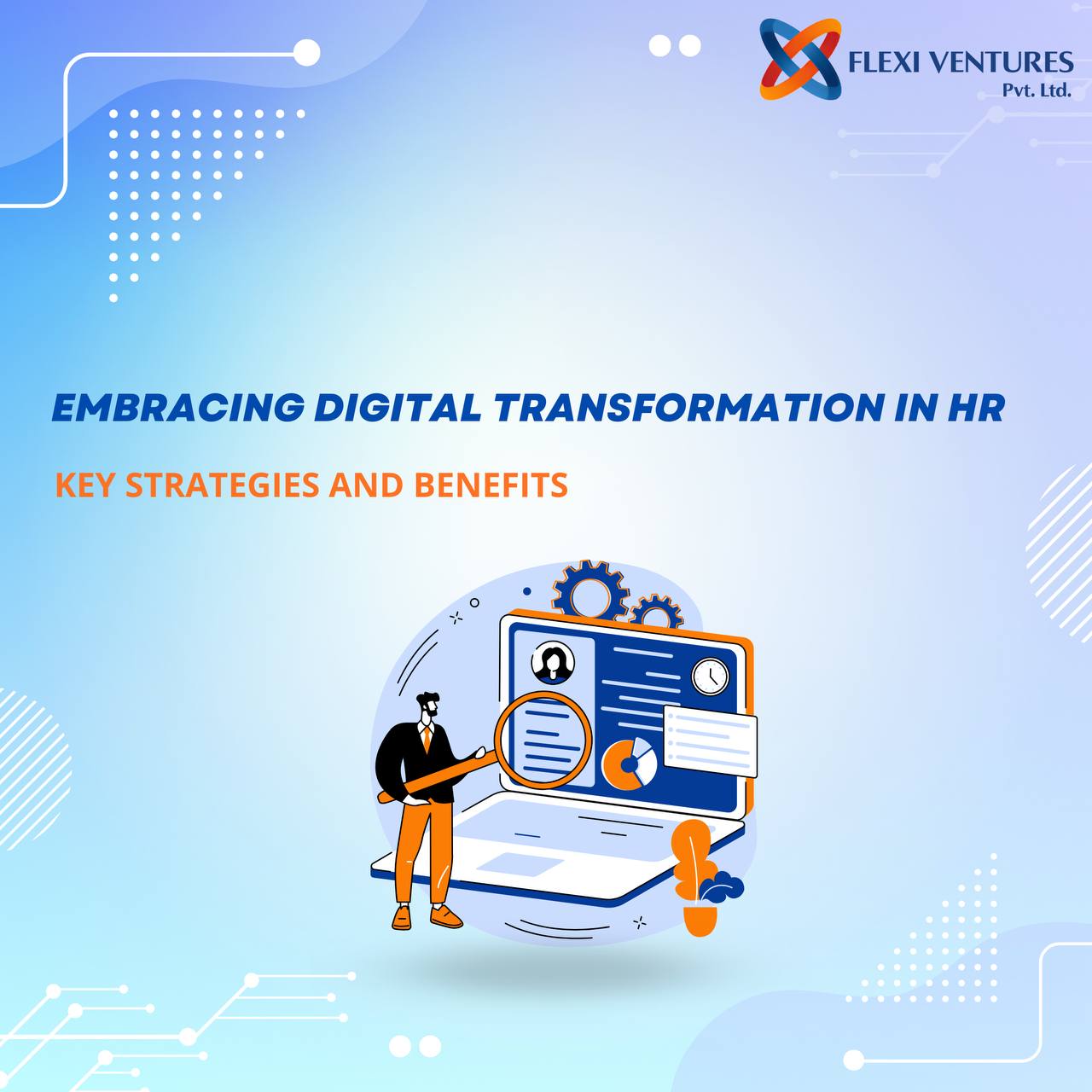Digital HR transformation involves integrating digital technologies into HR practices to enhance efficiency, effectiveness, and agility. This process leverages tools such as cloud-based HR systems, artificial intelligence, data analytics, automation, and employee self-service portals to digitize and automate HR processes. The aim is to improve HR operations, elevate the employee experience, and allow HR professionals to focus on strategic initiatives.
The Why of HR Transformation
Any HR transformation, whether digital or not, must have a clear objective. It has to make business sense. Too often, companies succumb to peer pressure; seeing their competitors ‘go digital,’ they feel compelled to follow suit. However, digitalizing HR processes merely for the sake of it is unwise. This approach often results in the implementation of expensive technology that fails to meet the actual needs of the business, ultimately defeating the purpose of the transformation.
Key Factors for a Successful Digital HR Transformation:
- Embrace Innovation: Adopt an innovation mindset, challenging traditional HR practices to unlock new possibilities and improve efficiency.
- Encourage Experimentation: Foster a culture of experimentation, piloting new HR technologies to identify the most effective solutions for the organization.
- Promote Collaboration: Facilitate cross-functional collaboration between HR, IT, and other departments to ensure alignment, share insights, and deliver cohesive solutions.
- Focus on Tangible Outcomes: Prioritize achieving tangible results, such as improved employee engagement, streamlined processes, data-driven insights, and enhanced overall business performance.
The stages of HR transformation
There are six stages of Digital Transformation
Business as Usual: This phase requires no explanation.
- Present and Active: Various experiments throughout the organization foster digital literacy and creativity.
- Formalized: Business relevance becomes crucial. Leadership should only support initiatives relevant to the business, although this is only sometimes adhered to.
- Strategic: Individuals recognize the power of collaboration. Their combined efforts and insights lead to the creation of new strategic roadmaps.
- Converged: A dedicated digital transformation team is established to guide the company’s strategy and operations.
- Innovative and Adaptive: Digital transformation becomes the norm, establishing a new business ecosystem.
The Challenges that take place in digital transformation efforts
- The absence of a well-defined strategy or objective for digital transformation
- Reluctance from the C-suite to commit to investment
- Insufficient budget to support digital transformation
- Deficiency in expertise for leading the digital transformation initiative
- Inflexibility in adopting new digital solution
Key Technologies in HR Digital Transformation
Here are five key technologies that play significant roles in HR digital transformation:
- HR Management Systems (HRMS): HRMS platforms are robust software solutions that wwconsolidate various HR functions, including payroll, recruitment, onboarding, performance management, and employee data management, into a unified system. These systems automate routine administrative tasks, streamline processes, and offer valuable insights through analytics.
- Artificial Intelligence (AI) and Machine Learning (ML): AI and ML technologies are increasingly used in HR for tasks like resume screening, candidate sourcing, predicting employee turnover, and analyzing employee sentiment. AI-driven chatbots are employed to manage employee queries and offer support, thereby enhancing HR service delivery.
- Data Analytics and Predictive Analytics: Data analytics tools empower HR departments to extract actionable insights from extensive employee data. Predictive analytics models can forecast trends in employee turnover, performance, and satisfaction, aiding HR professionals in making informed decisions and crafting proactive strategies.
- Employee Self-Service Portals and Mobile Apps: These platforms empower employees to independently access HR services and information. Employees can manage their personal information, request time off, enroll in benefits, view pay stubs, and communicate with HR representatives conveniently, thereby improving efficiency.
- Virtual Reality (VR) and Augmented Reality (AR): VR and AR technologies are transforming various aspects of HR, particularly in training and development.
These technologies collectively enable HR departments to become more strategic, agile, and data-driven, ultimately driving digital transformation within organizations.
Conclusion
Digital HR transformation is more than just adopting new technologies; it’s about integrating digital solutions into HR practices to enhance efficiency, effectiveness, and agility. Organizations can digitize and automate HR processes by leveraging tools such as cloud-based HR systems, artificial intelligence, data analytics, automation, and employee self-service portals, improving operations and elevating the employee experience. This transformation enables HR professionals to focus on strategic initiatives that drive business success.
A successful digital HR transformation begins with a clear objective that aligns with business needs, avoiding the pitfalls of following trends without purpose. Embracing innovation, encouraging experimentation, promoting collaboration, and focusing on tangible outcomes are essential for successful transformation. The journey through the six stages of digital transformation—from business as usual to innovative and adaptive—requires careful planning and execution.
To get started, organizations must establish clear goals, secure stakeholder buy-in, start with manageable projects, prioritize impactful ideas, continuously assess performance, and foster a culture that supports digital innovation. Despite challenges such as the absence of a well-defined strategy, reluctance from leadership to invest, budget constraints, lack of expertise, and inflexibility in adopting new solutions, the benefits of digital HR transformation are substantial.
Key technologies like HR Management Systems, AI and ML, data analytics, employee self-service portals, and VR/AR play significant roles in this transformation, enabling HR departments to become more strategic, agile, and data-driven. Ultimately, digital HR transformation drives organizational success by improving HR operations, enhancing the employee experience, and allowing HR professionals to contribute to strategic business initiatives.
For more information on HR consulting or support services visit our website
Visit our Website – www.flexiventures.in
Call – 8080100001
Email – contact.us@flexiventures.in

